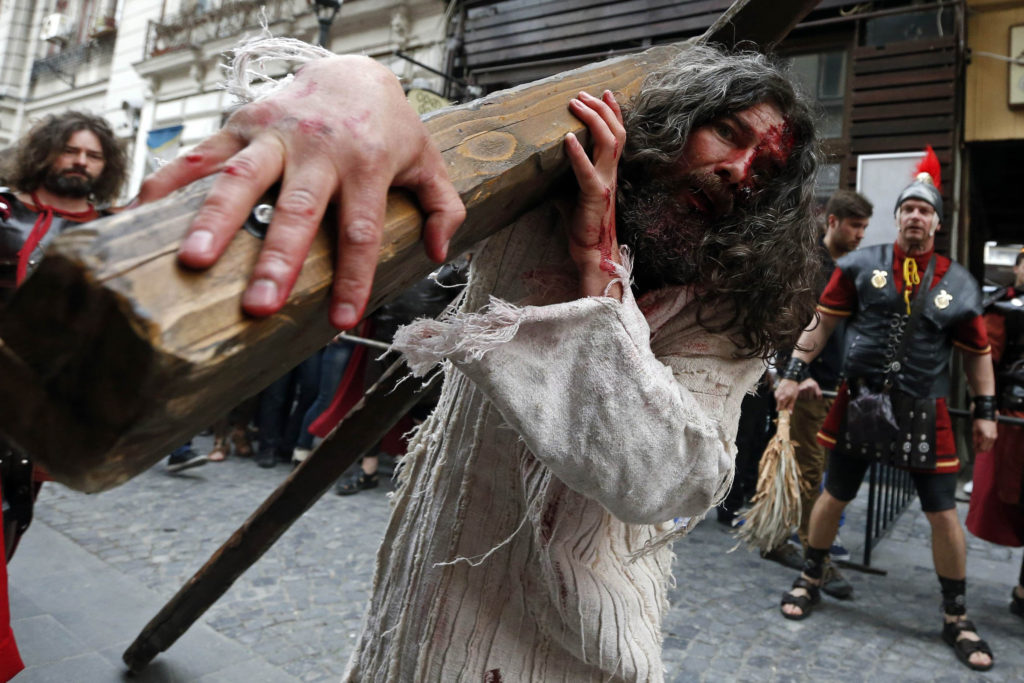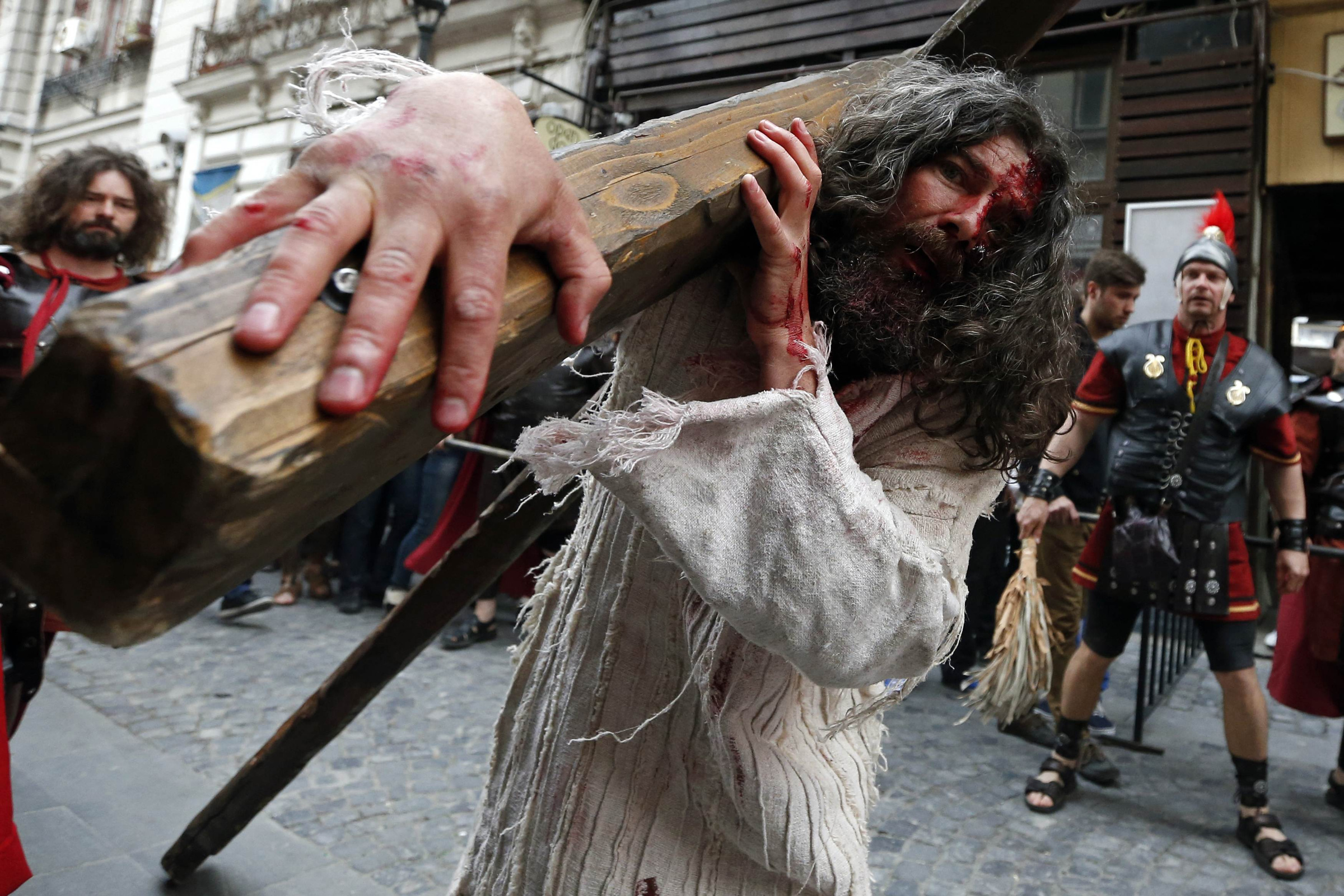
BEIRUT (CNS) — The Middle East is suffering a “Way of the Cross” that is the greatest tragedy since World War II, Melkite Catholic Patriarch Gregoire III Laham said in a Lenten message about suffering.
He said the church, despite its efforts, is having difficulty meeting the growing needs it faces in the region.
“We fail in front of the suffering of our people in all walks of life, Christians and Muslims. It’s a universal suffering,” he said.
“We as pastors are with our people, at their side, in front of them, behind them,” Patriarch Laham said, adding that it is “as if we wash the feet of those who are suffering as Jesus washed the feet of his disciples.”
“We are in the fifth year of the Way of the Cross,” especially in Syria, Iraq and the Palestinian territories and also in Lebanon, “which is affected in a tragic way by war, which rages around it,” Patriarch Laham said.
“This is a tragedy of the greatest tragedies of history — not just in the region, but in the world — since World War II,” he said.
“We call on all citizens and our children” to work together and with Pope Francis “to not let the flame of hope be extinguished in your hearts.”
The Syrian-born prelate pointed out that Lebanon has accepted waves of displaced people and refugees: from Palestine since 1949, from Syria since 2011 and, currently and in stages, from Iraq.
Lebanon is now hosting more than 1.5 million refugees — mostly Syrians and an increasing flow of Iraqi Christians — putting a strain on the country’s infrastructure and resources for its existing population of around 4 million people.
“How many have heard about all the stories of suffering,” he said. He noted that although the church encourages the faithful in the region to remain and hold on “with ropes of hope and faith and surrender to the will of God,” at the same time, the decision whether to stay or to leave one’s country “is a personal decision and responsibility of every individual and every family.”
“But we as pastors, we will remain with all who remain, and serve them … with all our strength,” Patriarch Laham added.
He thanked Muslims who urged Christians to remain in the Middle East. They have included leaders of Al-Azhar University, Sunni Islam’s leading institution of higher learning, and Egyptian President Abdel Fattah al-Sisi.
In a separate Lenten message, Cardinal Bechara Rai, Maronite Catholic patriarch, called for greater efforts to preserve the Christian presence in the Middle East.
“You know, my brothers and sisters, loved ones, how the needs of our people in Lebanon, Syria, Iraq, Egypt and the Holy Land are growing, because of the wars and destruction and displacement, as well as displacement and impoverishment due to the economic crisis and rising costs of living, unemployment and limited job opportunities,” the Lebanese cardinal said.
He urged people to participate in Caritas Lebanon’s annual fundraising campaign “geared to meet these needs,” which he said must be addressed in charity and love. He also assured people that “Christ is capable of renewing everything around us.”
The patriarchs called for fasting and prayer for peace. They also thanked Pope Francis for his appeals for Christians in the Middle East.
In the Eastern Catholic churches, Lent begins two days earlier than in the Latin rite. Maronite Catholics in Lebanon distributed ashes Feb. 16 this year.
— By Doreen Abi Raad, Catholic News Service.







